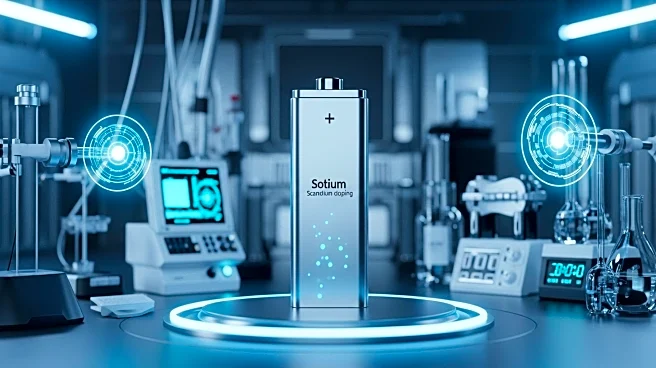What's Happening?
Researchers at Tokyo University of Science have made significant advancements in sodium-ion battery technology by introducing scandium doping to the cathode material. Sodium-ion batteries are considered a promising alternative to lithium-ion batteries due to sodium's abundance and lower environmental impact. The study addresses the issue of rapid capacity fading in sodium manganese oxide cathodes, a common problem that limits battery performance. Scandium doping has been shown to enhance the structural integrity of the cathode material, leading to improved battery performance and stability. This breakthrough could pave the way for more durable and efficient energy storage solutions.
Why It's Important?
The discovery of scandium doping's positive impact on sodium-ion batteries is crucial for the future of energy storage technology. As the demand for renewable energy sources increases, efficient and sustainable battery solutions are essential. Sodium-ion batteries offer a viable alternative to lithium-ion batteries, which are limited by lithium's scarcity and environmental concerns. The enhanced performance and stability provided by scandium doping could make sodium-ion batteries more competitive in the market, potentially reducing reliance on lithium and supporting the transition to cleaner energy solutions.
What's Next?
Further research is expected to focus on refining scandium doping techniques and exploring its application in other battery technologies. The study's findings may lead to increased interest and investment in sodium-ion battery development, with potential implications for industries reliant on energy storage solutions. Researchers may also investigate additional materials and methods to further improve battery performance and longevity. As these advancements continue, sodium-ion batteries could become a key component in the global shift towards sustainable energy.









